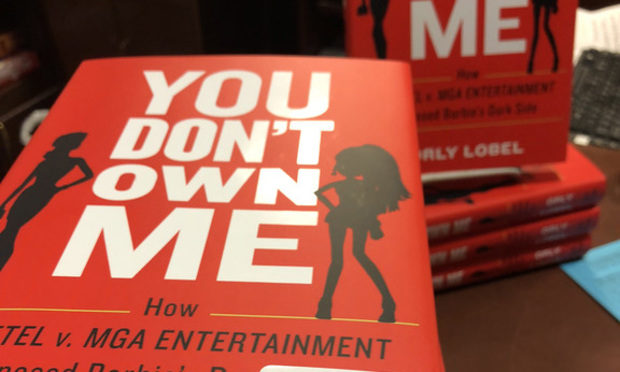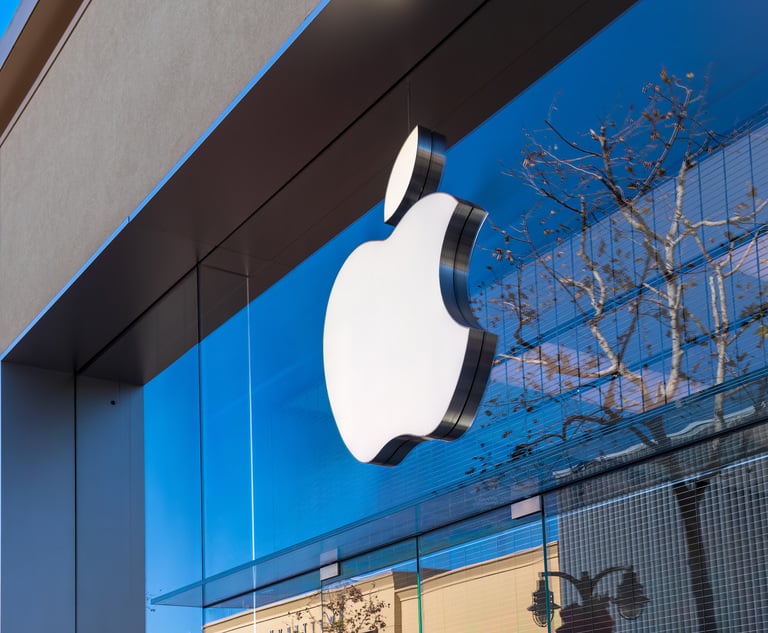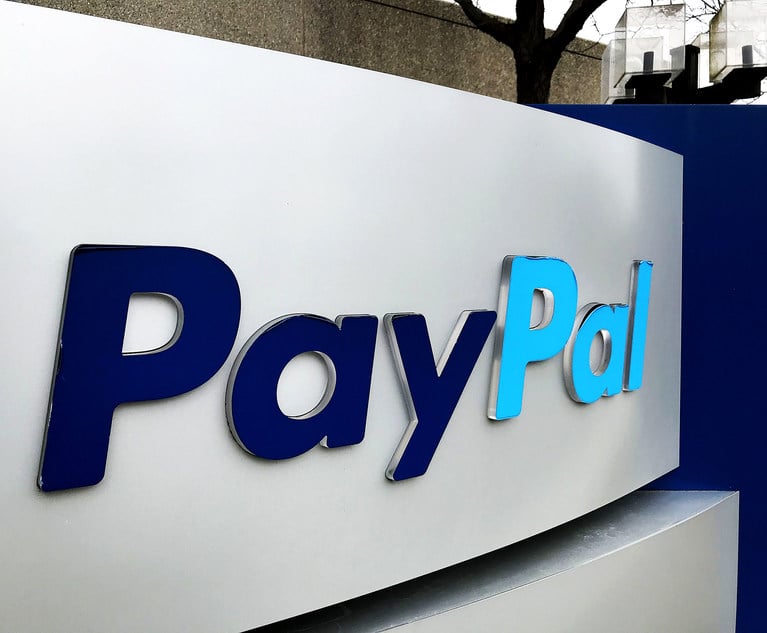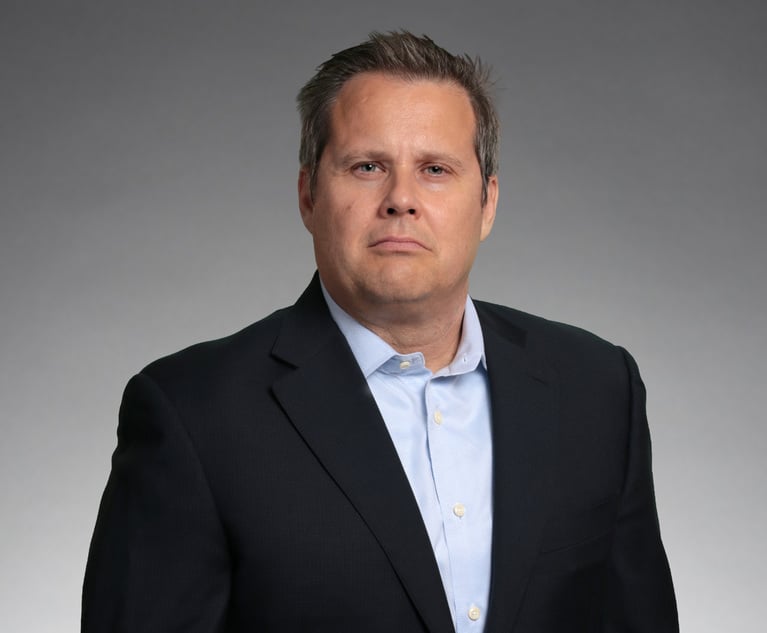How a Doll Line Rocked the Increasingly Intense IP World
San Diego law professor Orly Lobel talks about the rule breakers who dominate business, law and sometimes even the judiciary.
March 07, 2018 at 11:45 AM
7 minute read
The original version of this story was published on National Law Journal

Orly Lobel is a University of San Diego law professor whose 2013 book “Talent Wants to Be Free” helped contribute to a presidential call to action against non-compete restrictions. It also gave her the impetus for “You Don't Own Me,” a highly readable account of the trade secret war between between toy giant Mattel Inc. and upstart MGA Entertainment Inc. over MGA's Bratz doll line. We spoke with Lobel about the ever-increasing intensity of IP litigation and the rule breakers who dominate business, law and sometimes even the judiciary. This interview has been edited for clarity and length.
THE NATIONAL LAW JOURNAL: How did you decide to write You Don't Own Me?
ORLY LOBEL: Talent Wants to Be Free was about how we were—under the radar—expanding the world of intellectual property, and the kinds of knowledge that we're fencing through contractual arrangements and employment relations.
[Mattel v. MGA] is an iconic example. It's not just about non-competes. [It was about] broad, draconian innovation assignment agreements, that upon hiring you assign all your cognitive capacities throughout your time of employment, trying to reach into the weekends and nights, trying to reach into the future, sometimes try to reach back into what you did before joining the company.
NLJ: You also describe it as a legal battle over who gets to shape the attitudes and norms of womanhood.
LOBEL: Barbie is really beyond a toy or a doll. In the political debate there's actually discussions of Barbie — Sarah Palin was talked about that way, I think Ivanka Trump was referred to as that. Similar things with the women who are the front faces of our media and news forums. Barbie has shaped so much of what we see as the potential of women. What became really important to me was to show how the law has been used by Mattel [and other companies] with a small army of repeat law firms, curtailing the remixing of these images and the challenging of these images, whether they're by competitors or by artists, critics, fans, users, consumers, musicians.
NLJ: You mention the repeating nature. MGA-Mattel reminds me of some other super-IP trials that have since followed.
LOBEL: Apple?
NLJ: Yeah, that's one. Oracle v. Google, and now Waymo v. Uber. It's a lot of the same law firms, as you just mentioned. So are IP wars on this scale new, or have they always been with us?
LOBEL: I think they're on the rise. I like to think sometimes of Steve Jobs as embodying the two phases of how we thought about innovation in relation to IP. Steve Jobs [was once] quoted very publicly about just steal the best ideas from other companies. Sort of that culture that was traditionally the culture of Silicon Valley. There was an understanding that it's a repeat game in the market, there's a win-win story to have when everyone is looking at competitors' and collaborators' best innovations, best practices, improvements, and the industry as a whole moves quicker that way.
It's not to say there wasn't litigation then, but I think you see toward the end of Steve Jobs' life, a very different mindset and messages. He, again publicly, says I'm going to sue everyone that infringes upon Apple patents. He's very, very set on the Samsung litigation and other sorts of hyper-patenting and other litigious practices.
NLJ: How much of that do you think is a function or our IP laws and how much of it is just the natural fate of maturing companies?
LOBEL: That's a great question. I think the more industries become concentrated, the more incentive there is to use the law rather than create new products. I talk about this in the book, Mattel using that very theoretical model that Kenneth Arrow talked about—if a company dominates something like 90 percent of a product market, it really has very few incentives to cannibalize. They're actually using the term, we don't want to cannibalize Barbie.
NLJ: Your book is filled with people who break the rules, or follow their own rules. I'm thinking of Ruth Handler, of Mattel, who was convicted of securities fraud; the brash entrepreneur Isaac Larian of MGA and Judge Alex Kozinski [who ruled on the appeals detailed in the book and who recently resigned from the Ninth Circuit following allegations of misconduct by former law clerks.] Is a willingness to break rules a necessary precondition to innovation?
LOBEL: It's certainly true that in Silicon Valley, for example, there is that culture and ethos of “disruption,” which is always used in a very positive way. And disruption includes straddling legality. We can see this in the more recent companies like Uber and Airbnb, defying legal categories and creating some value by that defiance.
NLJ: Your book was published just before the #MeToo movement really took off.
LOBEL: Right. And before the Kozinski scandal.
NLJ: It seems as if every hero and anti-hero of your book pushes the boundaries of appropriate behavior.
LOBEL: When I wrote “Talent Wants to Be Free,” I felt like nobody [was] talking about noncompete clauses, and then a couple of years later everybody was talking about noncompete clauses.
Now we're seeing [the full range of impacts from nondisclosure agreements]. We see how NDAs are playing a big role in silencing reporting [of misconduct.]
It goes beyond sexual harassment. It's about how do we create the right incentives and culture and structures in our markets where people are testifying, are speaking out. It's really hard.
NLJ: And I think all the more difficult in the judicial chambers context because there does have to be a measure of privacy and trust, but …
LOBEL: Right. I don't think there's a magic answer. It's never been my argument that we need a world without any control measures by companies when they really have valid, legitimate interests, their technical secret information.
I challenged Kozinski when he sat down with me about his decision in the Mattel v. MGA case. I say, “You know, when it comes to copyright interpretation, you have in your decision this very strong opinion about how it's only concrete expressions, not ideas that can be copyrighted.”
And then [the decision] moved to the interpretation of [Bratz designer] Carter Bryant's contract, and his tone really shifts and he says, “I'm going to remand to the lower court to see what the sides really meant. Maybe they did mean that everything he thinks about, everything he conceives of, everything that's completely intangible, that's still in a very abstract, ephemeral stage, maybe that too, the sides intended for it to be propertized.”
And I said to him, “But these two are in tension, these two worlds.” And he replied, “Well, I think that's correct. Because copyright is a government grant of a temporary monopoly, it has to be treated with a lot of caution.” But he's a libertarian, and his contract interpretation, he said to me, and I quote him, “In theory one could approve slavery within the bounds of law and contract.” If it's consensual, the sides can decide on whatever arrangement they want.
This content has been archived. It is available through our partners, LexisNexis® and Bloomberg Law.
To view this content, please continue to their sites.
Not a Lexis Subscriber?
Subscribe Now
Not a Bloomberg Law Subscriber?
Subscribe Now
NOT FOR REPRINT
© 2025 ALM Global, LLC, All Rights Reserved. Request academic re-use from www.copyright.com. All other uses, submit a request to [email protected]. For more information visit Asset & Logo Licensing.
You Might Like
View All
Music App Denied Injunction Against Apple Over Alleged Scheme to Block Its Access to App Store

'It's Not Going to Be Pretty': PayPal, Capital One Face Novel Class Actions Over 'Poaching' Commissions Owed Influencers

'Biggest Influencer Scam of All Time'?: PayPal Accused of Poaching Commissions Via Its 'Honey' Browser Extension

K&L Gates Secures $10.5M Verdict for Washington Meat Retailer in Lawsuit Over 'Boneless' Chicken Product
Trending Stories
Who Got The Work
J. Brugh Lower of Gibbons has entered an appearance for industrial equipment supplier Devco Corporation in a pending trademark infringement lawsuit. The suit, accusing the defendant of selling knock-off Graco products, was filed Dec. 18 in New Jersey District Court by Rivkin Radler on behalf of Graco Inc. and Graco Minnesota. The case, assigned to U.S. District Judge Zahid N. Quraishi, is 3:24-cv-11294, Graco Inc. et al v. Devco Corporation.
Who Got The Work
Rebecca Maller-Stein and Kent A. Yalowitz of Arnold & Porter Kaye Scholer have entered their appearances for Hanaco Venture Capital and its executives, Lior Prosor and David Frankel, in a pending securities lawsuit. The action, filed on Dec. 24 in New York Southern District Court by Zell, Aron & Co. on behalf of Goldeneye Advisors, accuses the defendants of negligently and fraudulently managing the plaintiff's $1 million investment. The case, assigned to U.S. District Judge Vernon S. Broderick, is 1:24-cv-09918, Goldeneye Advisors, LLC v. Hanaco Venture Capital, Ltd. et al.
Who Got The Work
Attorneys from A&O Shearman has stepped in as defense counsel for Toronto-Dominion Bank and other defendants in a pending securities class action. The suit, filed Dec. 11 in New York Southern District Court by Bleichmar Fonti & Auld, accuses the defendants of concealing the bank's 'pervasive' deficiencies in regards to its compliance with the Bank Secrecy Act and the quality of its anti-money laundering controls. The case, assigned to U.S. District Judge Arun Subramanian, is 1:24-cv-09445, Gonzalez v. The Toronto-Dominion Bank et al.
Who Got The Work
Crown Castle International, a Pennsylvania company providing shared communications infrastructure, has turned to Luke D. Wolf of Gordon Rees Scully Mansukhani to fend off a pending breach-of-contract lawsuit. The court action, filed Nov. 25 in Michigan Eastern District Court by Hooper Hathaway PC on behalf of The Town Residences LLC, accuses Crown Castle of failing to transfer approximately $30,000 in utility payments from T-Mobile in breach of a roof-top lease and assignment agreement. The case, assigned to U.S. District Judge Susan K. Declercq, is 2:24-cv-13131, The Town Residences LLC v. T-Mobile US, Inc. et al.
Who Got The Work
Wilfred P. Coronato and Daniel M. Schwartz of McCarter & English have stepped in as defense counsel to Electrolux Home Products Inc. in a pending product liability lawsuit. The court action, filed Nov. 26 in New York Eastern District Court by Poulos Lopiccolo PC and Nagel Rice LLP on behalf of David Stern, alleges that the defendant's refrigerators’ drawers and shelving repeatedly break and fall apart within months after purchase. The case, assigned to U.S. District Judge Joan M. Azrack, is 2:24-cv-08204, Stern v. Electrolux Home Products, Inc.
Featured Firms
Law Offices of Gary Martin Hays & Associates, P.C.
(470) 294-1674
Law Offices of Mark E. Salomone
(857) 444-6468
Smith & Hassler
(713) 739-1250






